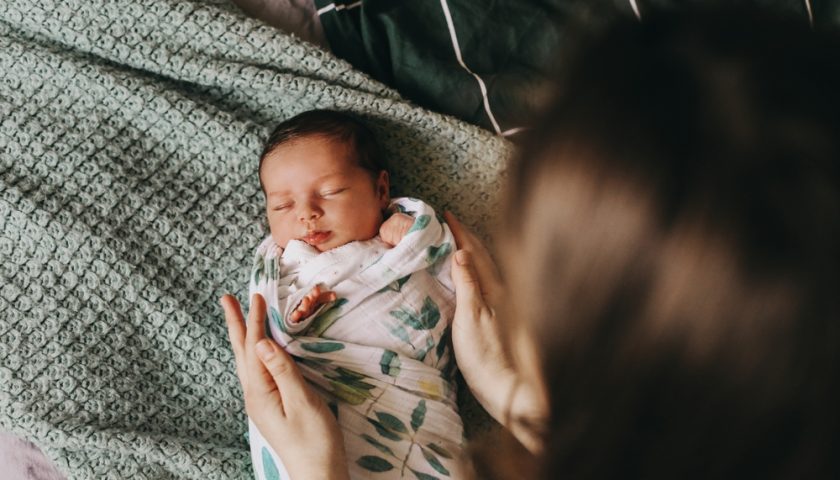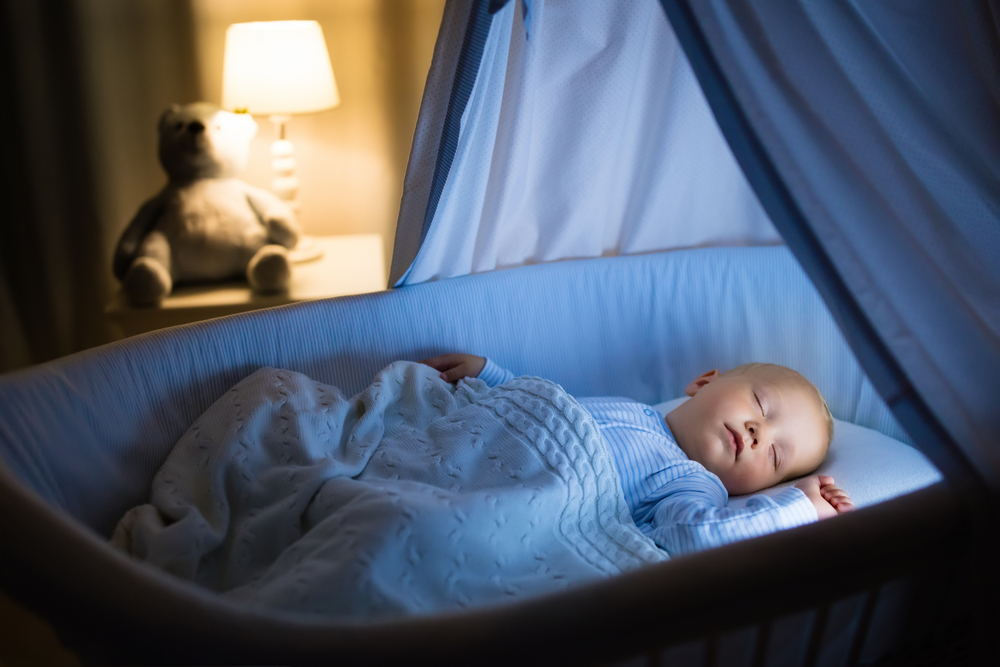The first three months after welcoming a child into the world are joyous and tiring at the same time. When there are many new challenges to deal with, getting your newborn baby to sleep is also the one.
Are you also one of those parents who have passed delirium and are on the verge of losing your mind due to a lack of sleep? Are you also looking for tips on how to get newborns to sleep?
Don’t worry, every new parent has been in your shoes. We’re here to help you adjust your newborn life outside of the womb by providing you with the newborn sleep support you need!
Keep reading!
Table of Contents
How to Get Newborns to Sleep?
How much should a baby sleep? According to the National Sleep Foundation, newborns should get 14–17 hours of sleep in a 24-hour period. However, some babies sleep as much as 18–19 hours each day.
In reality, your kid wakes up every few hours to get fed. This puts you to get into a state where you do everything to get them to sleep.
No more worries!!! This blog post will teach you how to recognise your baby’s sleep cues, and how to get newborns to sleep.
Here are seven suggestions for lulling your baby to sleep:
1- Look for Signs of Sleepiness
It’s all about the timing. By interpreting your baby’s drowsy symptoms, you may tune into your baby’s normal biological rhythms.
As soon as you see following cues, spring into action to make your baby sleep:
- When your infant yawns
- When your baby scratches the ear, rubs head or eyes
- When your infant is unable to fix eyes and glances away
- When your newborn is fussy or irritable
But if you wait too long, your baby may get overtired, resulting in reduced melatonin levels as well as the production of alertness hormones such as cortisol and adrenaline by her brain.
This makes it harder for your infant to fall and stay asleep, which might result in early awakenings. So pay attention to the above mentioned cues of sleepiness.
Also read about signs of a healthy baby.
2- Try Swaddling
Swaddling a newborn in the early months of life can help him sleep more deeply and for longer periods of time.

Keep in mind it works for some newborns in the first several months, but not for others. It’s excellent if your baby responds to it. It’s not a huge deal if it isn’t. And also beware of what works now could not work tomorrow. It’s fine to cease swaddling when a baby who used to enjoy it no longer does.
3- Soothe With White Noise
What a newborn hears (or does not hear) is equally as crucial as what they see. Get a white noise machine, which can help your infant sleep better by blocking out noise from the house, automobiles, and other sources.
The continuous and consistent sound will become associated with sleep for the baby. Lullabies and natural sounds are available on certain white-noise machines, but plain white noise will suffice—it will transport the baby back to the womb, and what could be more comforting than memories of mommy’s belly?
Look for a portable machine so you can mimic the nursery’s noises when you’re not at home. Just make sure it isn’t too loud so that it hurts the baby’s sensitive ears. Also keep the machine in the furthest corner of the room on the lowest setting.
Get to know about tips to make a fussy baby stop crying.
4- Dim The Lights
Because light signifies that it is daytime to a newborn, blotting out the sun will help them sleep. In fact, block off as much light as possible. What if your baby is a midnight nurser? In that case, attach a dimmer switch to a lamp and turn it on and off slowly.
5- Drop The Temperature
Everyone, especially babies, sleeps better in a chilly room. To provide your kid the most comfortable sleep, set the temperature between 68 and 72 degrees Fahrenheit. It’s normal for his fingertips to be cold. Place your palm on her chest to reassure yourself. If it’s warm, she’ll be fine.
6- Prepare for Quick Changes
Hunting for a fresh crib sheet in the middle of the night after your kid soaks his diaper and turning on the lights might wake him up even more, making putting him back to sleep take an eternity.
Rather, prepare a double layer ahead of time: Use a conventional crib sheet, followed by a disposable waterproof pad, and finally another sheet on top. Simply peel off the top layer and pad, dump the sheet in the laundry, and discard the waterproof pad.
Also, keep a swaddle, or a sleep sack nearby – whatever your baby requires to sleep peacefully through the night – so you don’t have to dig through drawers every time your baby’s diaper leaks.
Look out for the best tips to comfort a teething child.
7- Start A Bedtime Routine
Moving next to how to get newborns to sleep, a steady bedtime routine can be quite beneficial. You can master the three B’s: BATH, BED, BOTTLE!
Start with a relaxing bath, final feeding, and then a peaceful sleep. You can also give the infant a brief lotion massage, gripping and releasing the baby’s knees, wrists, elbows, and shoulders, and anywhere else there’s a joint. Then turn off the lamp, switch on the white-noise machine, and sway beside the crib until the baby sleeps.
Wrapping Up – Give Yourself A Break!
Listening to your best friend, relative, or neighbour brag about how their baby slept through the night at two months can stress you out. Don’t get into useless comparisons. Give yourself a break and stay relaxed! All you need to do is a little observation, a little trial and error, and a lot of flexibility to address your baby’s sleep troubles. Still if you think your baby sleep patterns aren’t getting improved, you can visit the paediatrician. You can get your appointment fixed via Healthwire.pk.
